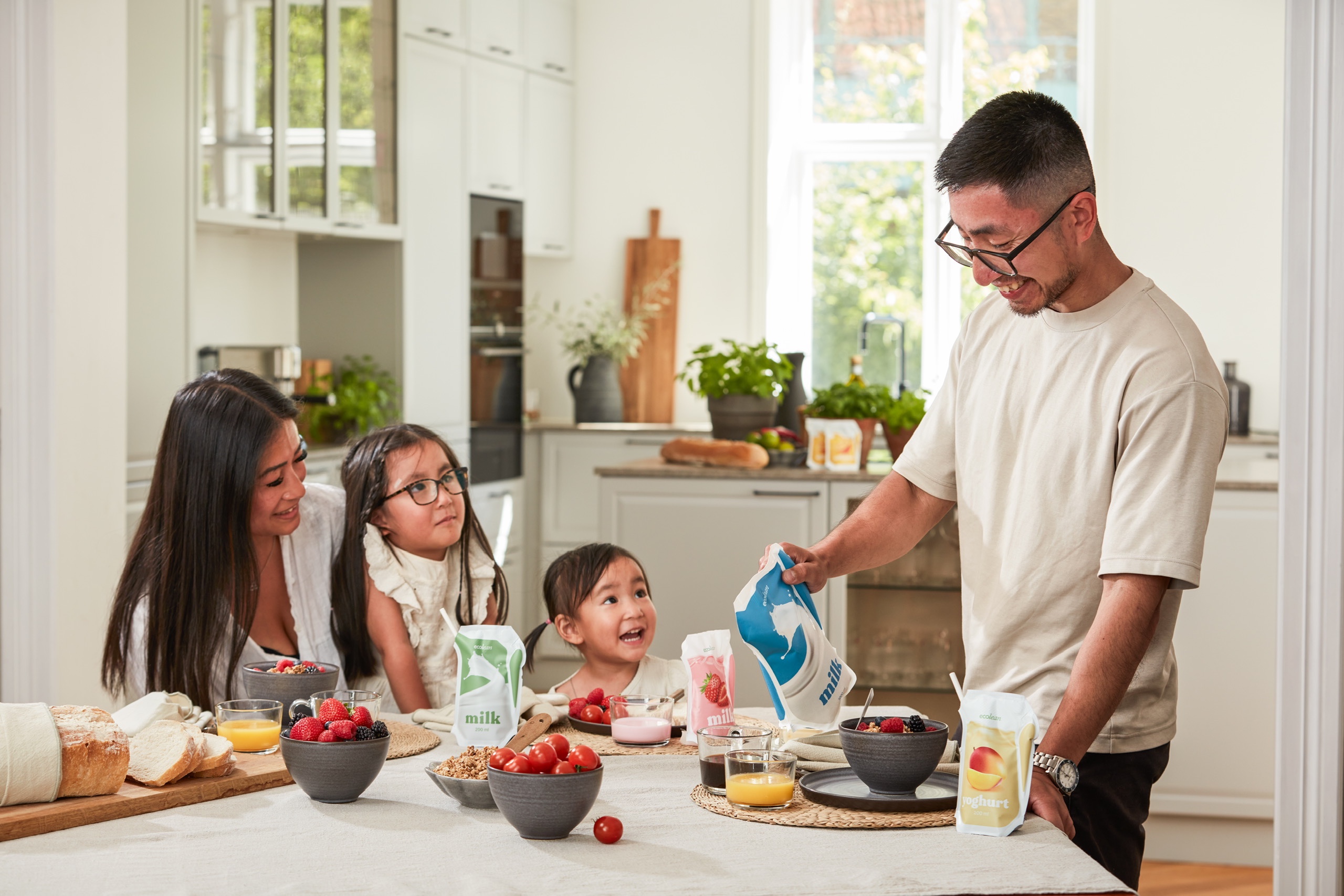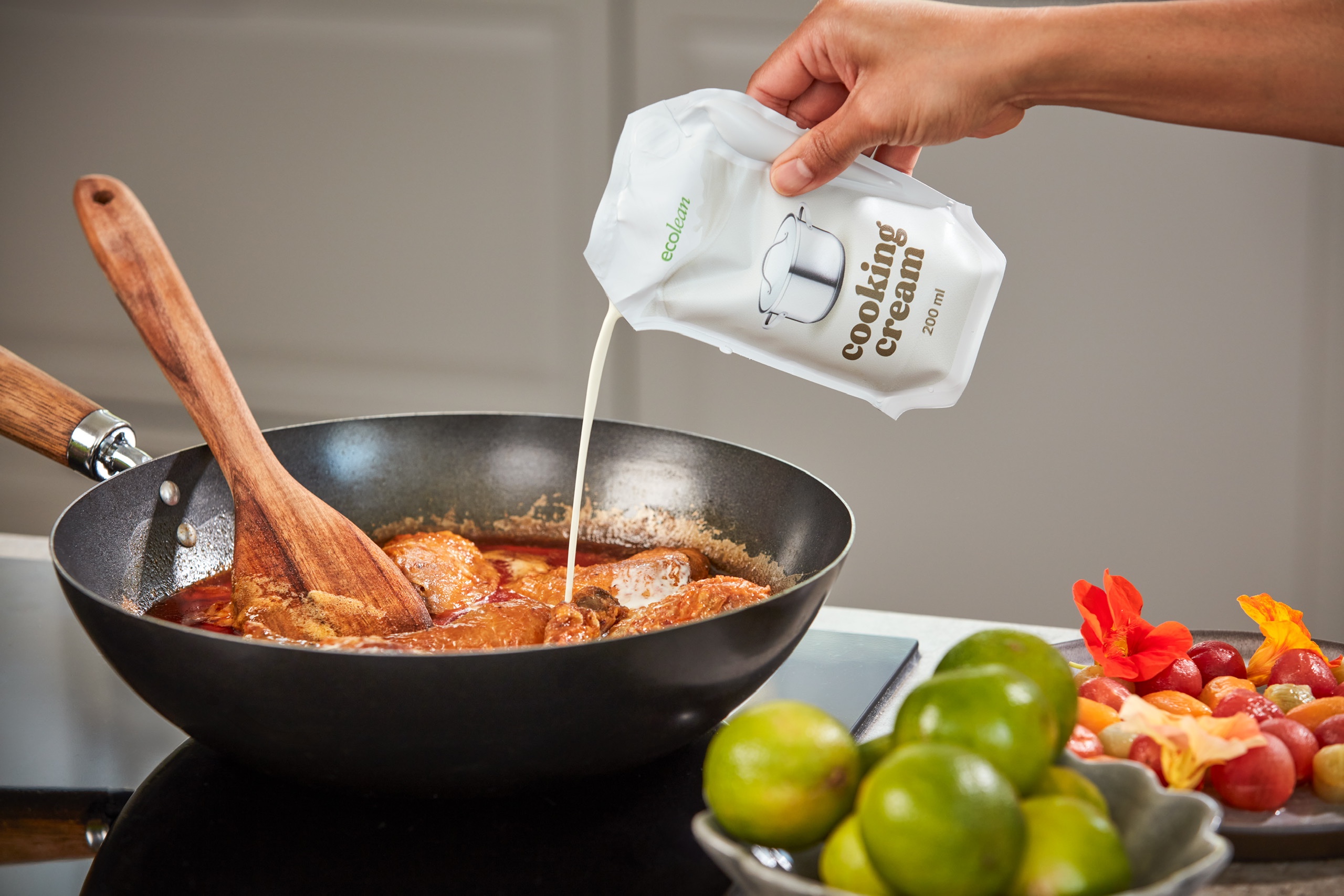
Around one-third of all food produced globally never gets eaten. This includes 17 per cent wasted at the consumer level. Meanwhile, nearly 10 per cent of the global population does not have enough to eat, according to the United Nations Food and Agriculture Organization (FAO). Moreover, an estimated 8 to 10 per cent of global greenhouse gas emissions are linked to food waste – that’s five times more than emissions from global aviation.
Packaging promotes food availability and safety
Packaging plays an essential role in feeding billions of people by preserving food freshness, extending shelf life, and protecting products during transport and storage. It helps prevent contamination and enables global distribution of perishable goods, contributing to reduced spoilage and waste. By supporting efficient, hygienic, and convenient delivery, packaging helps ensure a stable, accessible, and sustainable food supply.
Aseptic packaging, which prevents microorganisms from entering during and after filling, is especially important. It enables long-distance transport and ambient storage of products such as Ultra-High-Temperature (UHT) milk without refrigeration – particularly valuable in regions lacking cold chain infrastructure.
When packaging becomes part of the problem
Despite its benefits, some packaging designs can unintentionally lead to food waste. For instance, difficult-to-empty packages can result in 3 to 11 per cent of food being left inside and discarded. Over-sized packaging formats may also cause consumers to buy more than they need, increasing the risk of spoilage and waste.
Squeezable packaging makes a difference
Some packaging alternatives can significantly reduce waste – squeezable designs are one such solution.
A provider of such lightweight packaging for liquid food is Ecolean, a Sweden-based company that offers complete filling and packaging solutions to customers around the world. With sustainability at the core of its business, the company promotes resource efficiency throughout the value chain – from lightweight food packaging that supports the efficient use of raw materials and reduced transport emissions, to renewable energy and the use of industry-leading Environmental Performance Declarations for its packaging, filling machines, and operations. And importantly for food waste – Ecolean packages are easy to fully empty.

Making every drop count
“Our lightweight squeezable packages make every drop count – to promote resource efficiency and minimise food waste,” said Ms. Maria Ahlström, Chief Sustainability Officer at Ecolean. “They do this by being easy to fully empty by flattening them out.”
Mr. Henrik Widestadh, Chief Product & Services Officer at Ecolean, added: “We understand that not being able to get all the product out of a package can be frustrating for consumers, and our consumer focus groups have highlighted how much they appreciate being able to squeeze everything out of an Ecolean package. Our customers also value this flexibility and premium perception for marketing campaigns.”

Right-sized solutions and reduced production waste
Ecolean packages come in a variety of sizes – from 125 ml for on-the-go use to 1,000 ml family packs – enabling consumers to choose the right amount for their needs, helping reduce waste at home.
The company also focuses on efficiency during production. Its filling machines are designed to optimise energy use, operate without running water, and minimise waste during setup.
“Whereas many filling machines on the market waste packaged food during testing and production setup, our machines can be set up using empty packages to avoid food waste,” explained Ms. Carin Hagsten, Manager of Food Applications at Ecolean. “This is a relatively small contribution to reducing food waste, but it exemplifies our holistic value chain approach to minimizing waste and promoting resource efficiency at every stage. This approach is what makes Ecolean truly unique in the market.”
About Ecolean
Ecolean is a system supplier of packages, filling machines, downstream equipment, and services for the liquid food industry. The company serves both chilled and ambient products across categories such as milk, yoghurt, cream, plant-based drinks, and still beverages. Ecolean has production facilities in Sweden, China, and Pakistan, and operates commercially in more than 20 countries across five continents.








 Google translate
Google translate